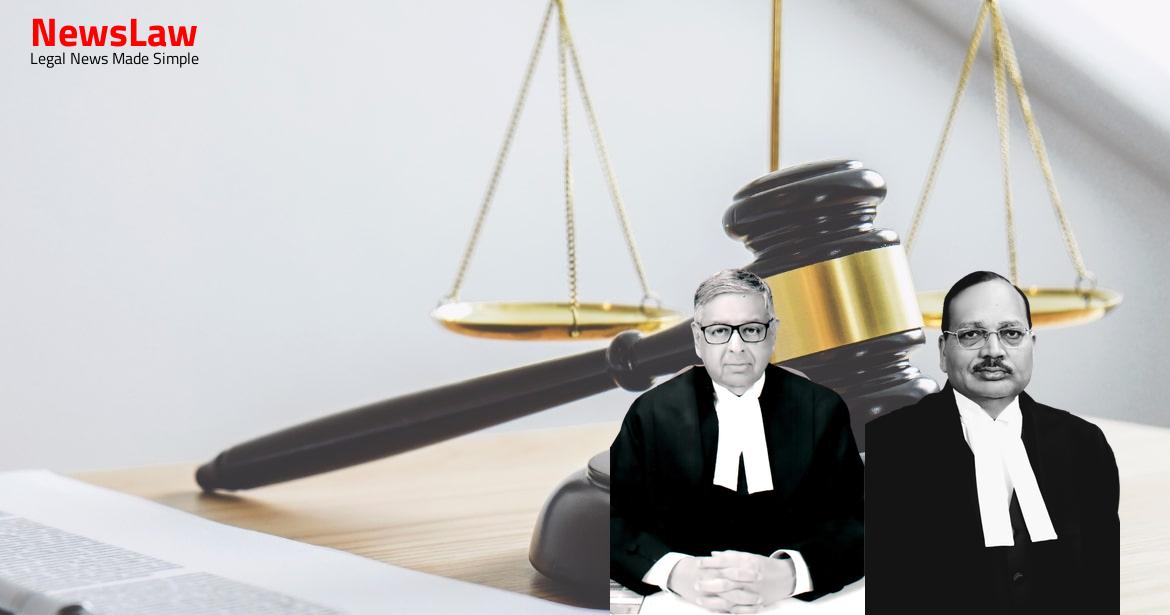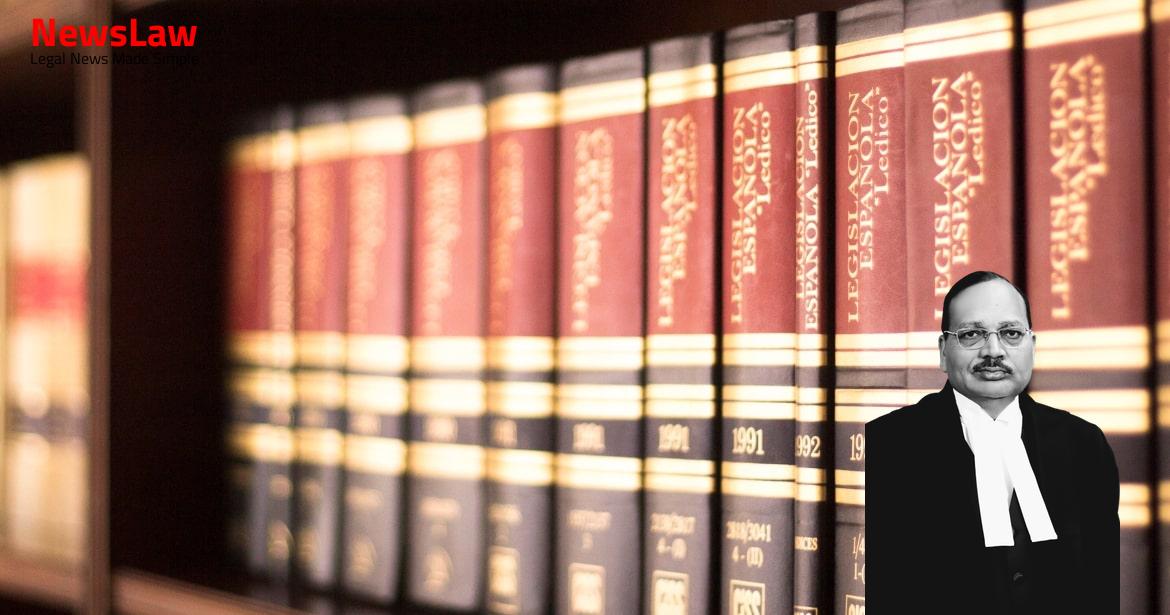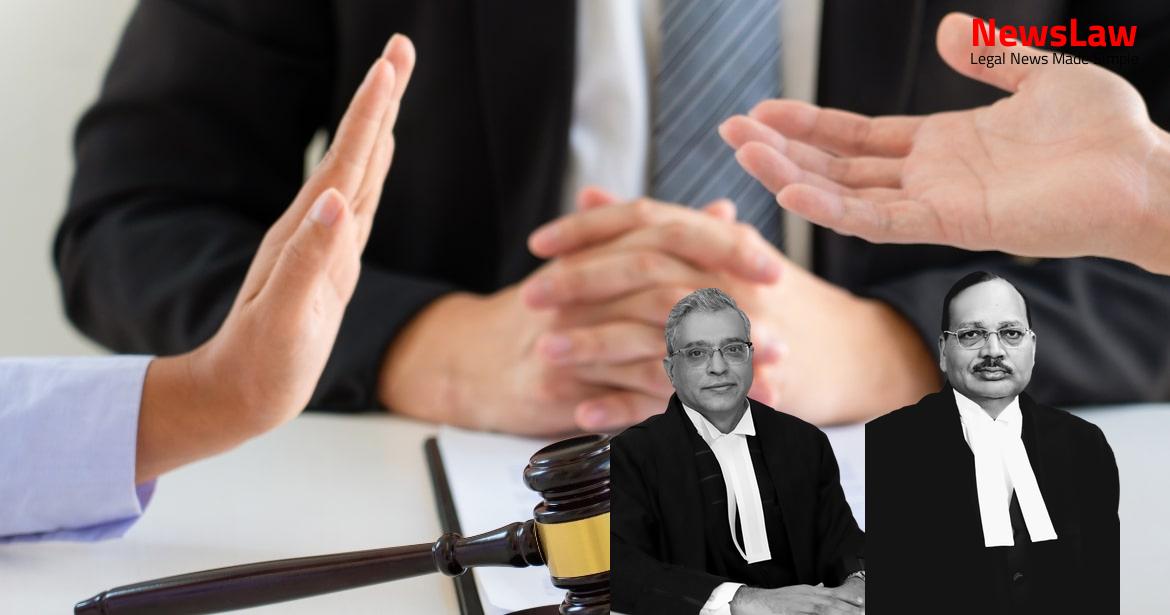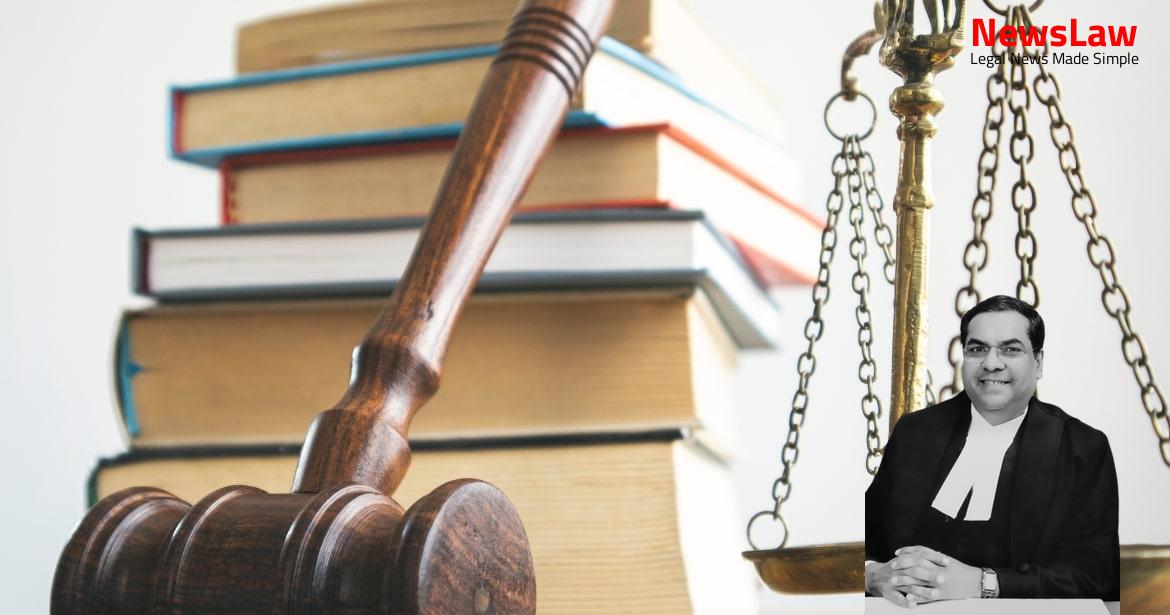Delve into the realm of judicial analysis in a recent court case where the High Court scrutinized the legal aspects of a second appeal. The court’s meticulous review of the lower court’s findings and application of law sheds light on the nuances of legal reasoning and decision-making. Stay tuned to unravel the intricacies of this intriguing legal saga!
Facts
- No appearance for the respondents despite service of notice
- Previous order granted two weeks for counsel to know exact position of disputed property and any compromise between parties
- Matter called again today with no representation from respondents
- Trial Court dismissed the suit of the appellant after looking into the evidence on record.
- District Judge reversed the findings of the Trial Court and decreed the suit in favor of the appellant.
- High Court noted that the First Appellate Court considered irrelevant material and erred in appreciating the legal issue involved.
- High Court upheld the findings of the Trial Court and dismissed the suit of the appellant in the second appeal.
Also Read: Electoral Malpractices in Mayor Election
Issue
- The learned joint District Judge considered whether the transaction between the plaintiff and defendants is void or voidable.
- A contract becomes void if it is opposed to public policy and voidable if it is the result of fraud, undue influence, coercion, or misrepresentation.
Also Read: Balancing Power and Transparency: Electoral Bonds Struck Down, Disclosure Mandated
Analysis
- The High Court upheld the decision of the Trial Court despite negating the observations of the First Appellate Court.
- The High Court highlighted that neither party claimed the transaction to be void or voidable, but that the sale-deed was executed as collateral security.
- No settlement took place between the parties and they intend to continue with litigation.
- The High Court noted that the sale-deed was held to be nominal and for collateral security by the Learned Civil Judge.
- Provisions of Section 103 of the Civil Procedure Code allow the High Court to decide factual issues if not determined by lower courts or wrongly determined by them due to a legal question.
- The High Court did not remand the matter but could have under Section 103 or decided the factual issues themselves.
- The High Court criticized the District Judge for not considering relevant Evidence Act provisions and focusing on irrelevant aspects.
- The High Court did not consider the evidence in the correct light and should have either remanded the matter or decided on the facts under Section 103 of the Civil Procedure Code.
- Section 103 of the Code of Civil Procedure allows the High Court to determine issues of fact.
- A second appeal can be entertained on a question of fact if the findings of the lower courts are vitiated by non-consideration of relevant evidence or an erroneous approach to the matter, rendering the findings perverse.
- High Courts cannot routinely or casually interfere with concurrent findings of fact by substituting their subjective satisfaction, but can do so if the findings are irrational, based on no evidence, rely on unreliable evidence, suffer from procedural irregularities, or are based on conjecture and surmises.
- Findings of fact must be logical and reasonable, and any judgment that lacks application of mind or is based on conjecture is vitiated and can be considered perverse.
- The High Court decided the appeal without assessing the evidence on record.
- The High Court’s order is liable to be set aside.
- The matter should be remanded for further consideration.
- The substantial question of law is answered accordingly.
- It was inappropriate for the High Court to not assess the evidence before making a decision.
Also Read: Recall of Resolution Plan Approval: Legal Analysis
Decision
- The appeal is allowed, setting aside the judgment and decree passed by the first appellate court and restoring that of the trial court.
- The order of the High Court is set aside, and the matter is remanded back to the High Court for fresh consideration of the appeal on facts and law.
- The High Court is permitted to modify the question of law framed or frame additional questions of law after providing an opportunity to the parties.
- No observations have been made regarding the merits of the case or the correctness of the High Court’s legal holding.
- The High Court is requested to dispose of the matter within six months from the date of communication of this order.
- The appeal is disposed of with the aforementioned terms.
Case Title: NARAYAN SITARAM BADWAIK (DEAD) THR. LRS. Vs. BISARAM AND ORS. (2021 INSC 94)
Case Number: C.A. No.-006124-006124 / 2011



